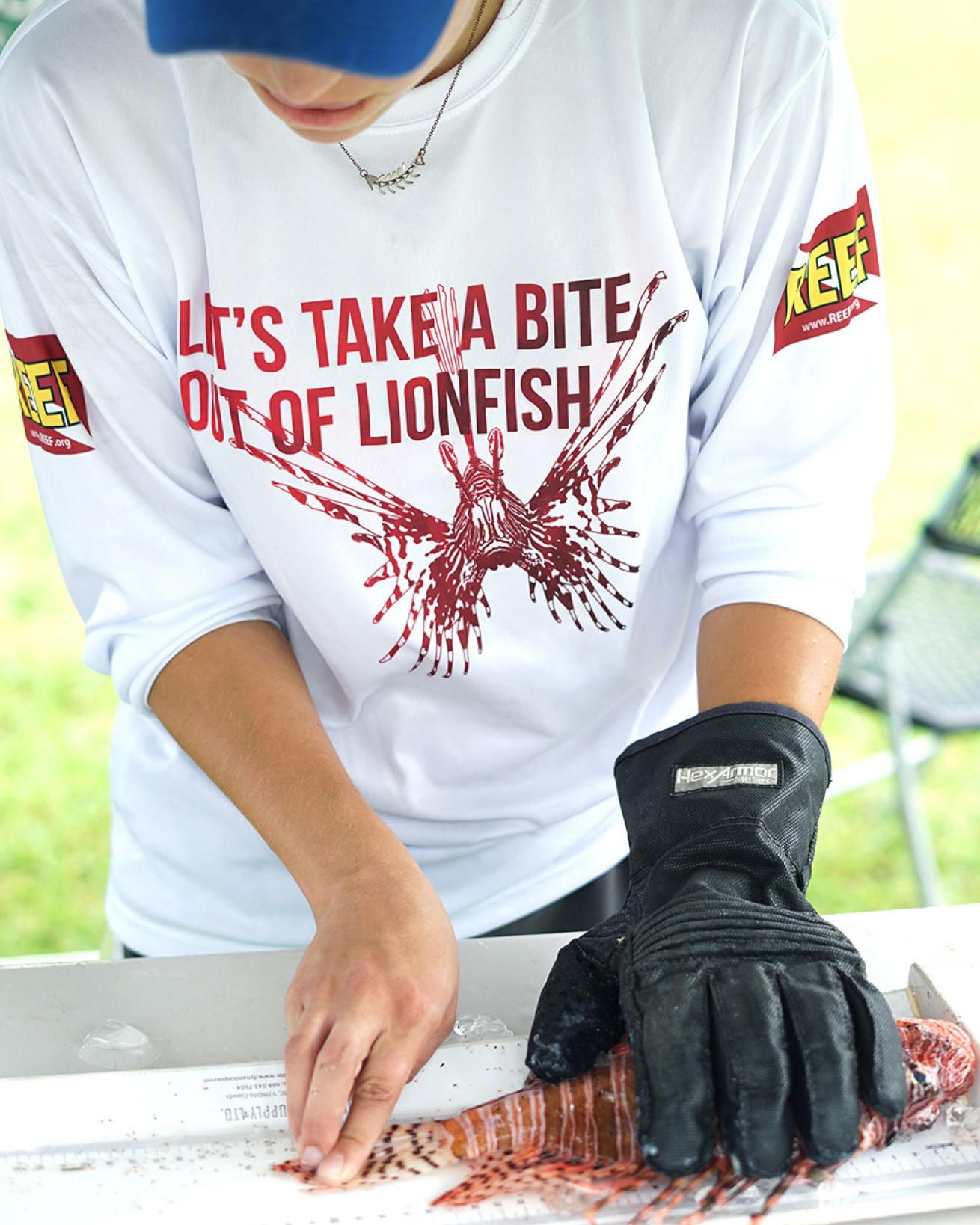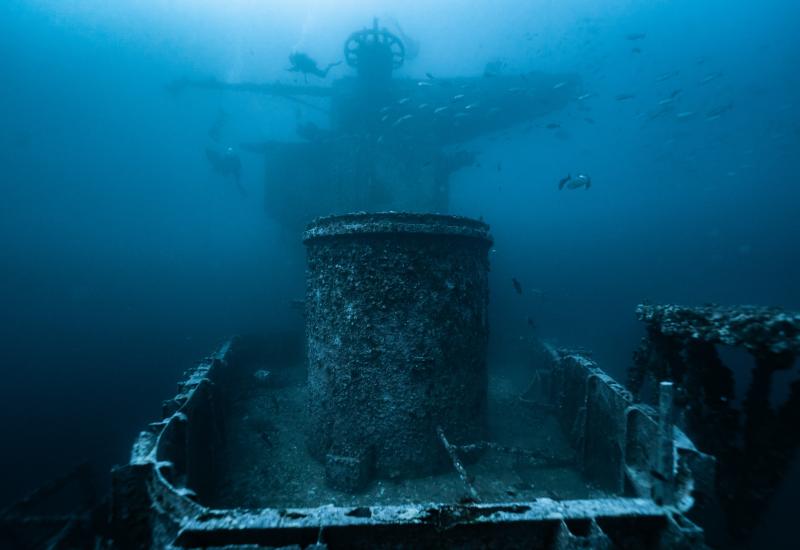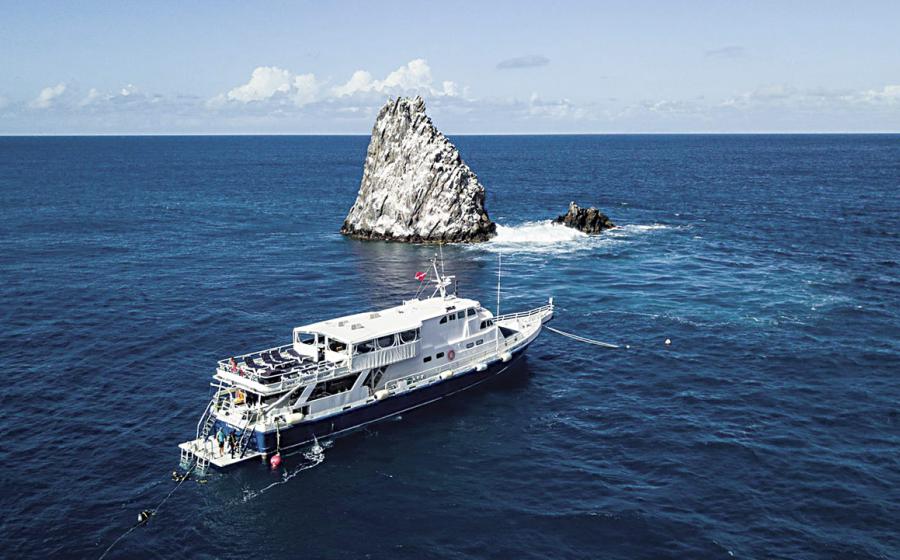Conservation Spotlight: Reef Environmental Education Foundation

Lureen Ferretti/REEFA diver assists in surveying the reef.
MISSION: “To protect biodiversity and ocean life by actively engaging and inspiring the public through citizen science, education, and partnerships with the scientific community.”
HQ: Key Largo, Florida
YEAR STARTED: 1990
CONNECT: Instagram | Facebook | Twitter
PROJECT: REEF has more than 70,000 members worldwide, all of whom help the organization make a difference for the marine environment, whether it’s through conducting surveys, contributing financially or simply engaging in conversations about threats to the ocean.
“Everything we do, from community outreach, to publishing a cookbook about an invasive species, to providing marine life data to researchers, supports our overall goal of protecting biodiversity and ocean life,” says Amy Lee, REEF’s trips program and communications manager.
The organization’s Volunteer Fish Survey Project represents the world’s largest marine life sightings database, with more than 225,000 surveys.
Although based in Florida, REEF has dedicated surveyors all over the world — not only in warm water, but also in cold and temperate regions such as the Pacific Northwest or Northeast U.S., where, in addition to surveying fish, REEF also collects data on designated invertebrate and algae species.
“In cold water areas, invertebrates tend to be much more common than fish, and many of them are keystone or indicator species, which can be great for our data because it gives a good idea of the health of an ecosystem,” Lee says.
The data collected by citizen scientists can indicate declines in certain species, or when a species is found somewhere it hasn’t been reported previously, which can be useful when determining protections for certain species or areas.
“Science relies on observation,” Lee says. “When recreational divers all over the world are in the water recording and sharing information, it helps to improve our understanding of what’s happening in the ocean, and makes us aware of changes and potential threats.”

Gabby Magalski/REEFA volunteer assists with measuring the lionfish at a derby.
GET INVOLVED:
To date, more than 15,000 volunteers have contributed at least one survey to REEF’s database. Anyone can participate, regardless of age or dive experience. And because the organization collects data from all over the world, surveys can be conducted no matter where you dive.
“Before you get in the water, just grab your slate and pencil,” she says. “There is no set pattern or transect to follow; you simply dive as you normally would, but write down every fish species you see. It’s a lot of fun if you and your dive buddy each do a survey, because you can discuss your sightings after the dive.”
Anyone can easily become a REEF surveyor, Lee says.
“We have plenty of educational tools such as photo id cards and underwater paper to help people get started,” she says. “We also offer ‘Fishinars,’ which are webinars about fish identification and marine life. Fishinars are free and you can watch from anywhere with an internet connection, which makes it easy to start learning how to identify what you are seeing on your dives.”
One of the best parts of becoming a surveyor, besides being able to contribute to the marine science community, is that it can deepen your connection to the ocean.
“Once you start doing surveys, it changes your experience on a dive, and people stick with it because it’s empowering and fun to keep learning,” Lee says. “A lot of divers will begin noticing even more underwater when they start doing surveys, and that knowledge can lead to a greater appreciation of the underwater world.”

Courtesy REEFFormer Scuba Diving magazine Sea Hero, Lad Akins, participates in a REEF sponsored lionfish derby.
Participate in a Lionfish Derby
REEF’s lionfish derbies are fun competitions that are held to spear and remove as many lionfish from Florida reefs as possible. After the competition period ends, REEF staff measures every lionfish caught, tallies up the results and awards prizes to the teams that harvested the most lionfish, as well as awards the competitors who remove the smallest and largest lionfish.
“Divers, snorkelers and freedivers can register to compete in any of our derbies, but there are plenty of opportunities for involvement whether you hunt lionfish or not,” Lee says. “At several of our derbies this summer, we are hosting culinary competitions with a prize for the tastiest lionfish dish. We are always looking for those interested in volunteering at the events as well, and of course the public is invited to attend our derbies, which include scoring, raffles, dissections and filleting demos, lionfish ceviche samples and even live music at some locations.”
The 2018 lionfish derby series is sponsored by Whole Foods Market and includes six events throughout Florida, in Miami, Sarasota, Ft. Lauderdale, Palm Beach County, Jacksonville and Key Largo.
Teams of two to four people can participate in a REEF lionfish derby. If someone is interested in competing but doesn’t have a team, Lee says she recommends connecting with other participants through REEF’s Facebook event pages for each derby.
“Thanks to social media and word of mouth, single participants are usually able to connect teams who have openings, so that anyone who is interested has an opportunity to be a part of a derby,” she says.
REEF has been organizing lionfish derbies since 2009. To date, 21,092 lionfish have been removed through the derby program.
REEF’s Field Survey Trips Program offers dive trips all over the world to collect survey data in different project regions. There are about 15 trips each year, to both tropical and temperate dive destinations.
“Our trips give divers the opportunity to have a positive impact on the ocean while learning and having fun at the same time,” Lee says. “Participating in a trip can be rewarding and brings ocean-minded people together; in fact many attendees have made lasting friendships on a REEF Field Survey.”
A typical day on a REEF Field Survey includes diving and an educational seminar about fish identification. Trips are led by REEF staff members or other qualified individuals who are experts in their field.
“We call our trips ‘dive vacations that count,’ because not only do our travelers get to take part in meaningful conservation work, they are literally counting fish to collect data on marine biodiversity,” Lee says.
There are also several special lionfish-focused trips in the Caribbean, during which participants remove lionfish, collect samples for research and learn about the invasion of the species.









